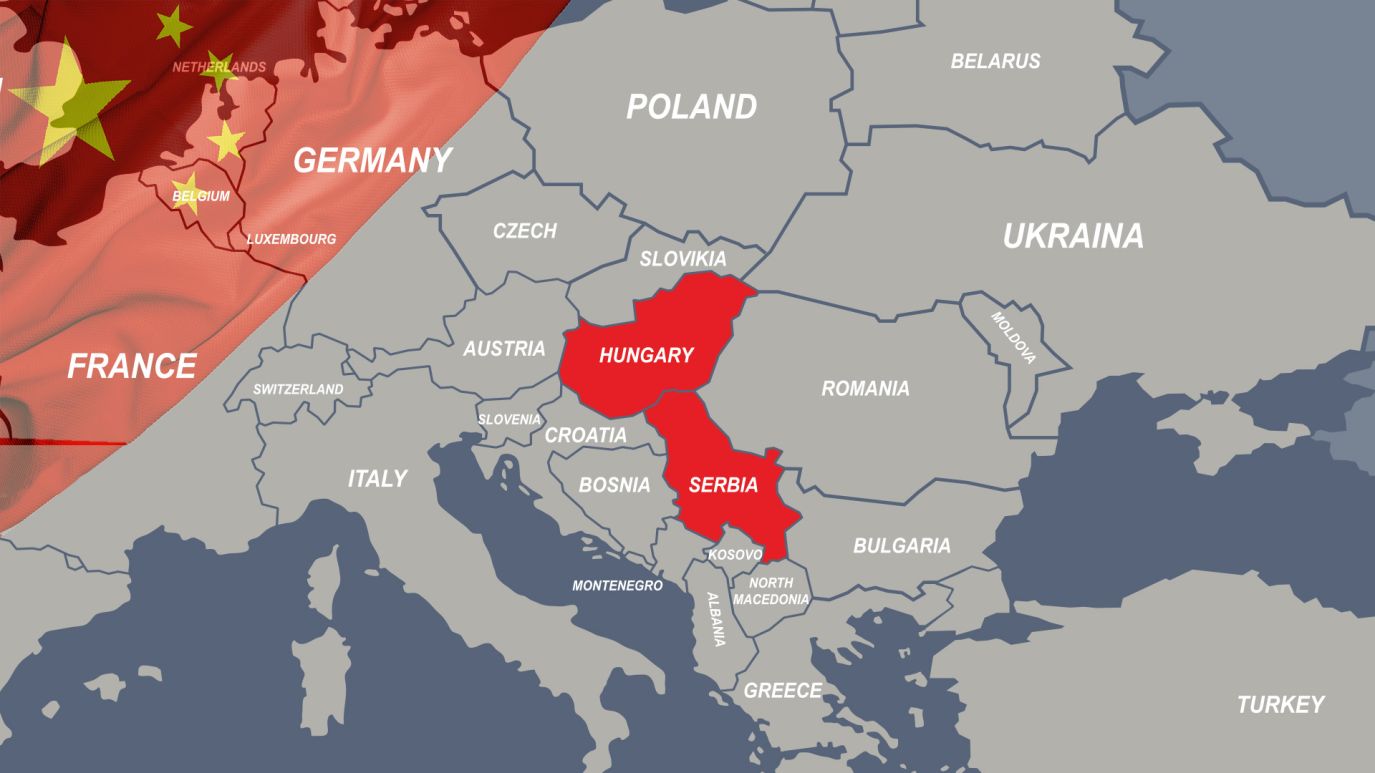-
Blog
Xi Jinping Advances China’s Agenda with Serbia and Hungary

Chinese President XI Jinping visited Serbia and Hungary on 8-9 May for the final leg of his first trip to Europe since 2019. Xi’s visits advanced China’s agenda of leveraging EU divisions and amplifying a shared authoritarian agenda with Hungarian Prime Minister Viktor Orbán and Serbian President Aleksandar Vučić, especially as China-EU tensions rise.
Serbia is China’s only “ironclad” friend in Europe. The two countries’ political ties originated when Serbia was still part of Yugoslavia. After Yugoslavia disintegrated, mutual support for their respective territorial claims has become a major driver for China-Serbia political relations.
- China still refuses to recognize Kosovo independence and Serbia has been vocal in its support for China’s unification with Taiwan. During Xi’s visit to Belgrade, the two sides reiterated their support for each other on these issues. Serbia has expressed support for China on almost all domestic and international issues.
China also views Serbia as an important model for its global economic expansion and a bridgehead in the European market. In 2015, Serbia was among the first European countries to join China’s Belt and Road Initiative (BRI).
- China-Serbia trade grew from $596 million in 2016 to $4.35 billion in 2023.
- Over the past 10 years, China’s investment in Serbia grew 60 times and in 2022, China became Serbia’s largest foreign investor with investments valued at $1.48 billion in 2023. As a comparison, total EU investment in Serbia in 2023 was $21.6 billion. China’s investments in Serbia are concentrated in the steel industry, infrastructure development, copper mining, and food processing.
- In October 2023, the two countries signed a free-trade agreement (FTA), marking China’s first FTA with a European country.
- During Xi’s recent visit, the two sides signed 18 cooperation agreements covering telecom, agriculture, e-commerce, technology, and culture. China is also building an industrial park in Belgrade.
As a “renegade” member of NATO and EU, Hungary has become an important European partner to China as tensions between China and Western countries rise. In addition to its pro-Russia stance, the Hungarian government under Prime Minister Viktor Orbán has taken different positions from most EU members on some major China-related issues. China and Hungary elevated bilateral relations to “all-weather comprehensive strategic partnership” during President Xi’s recent visit.
- Hungary was the first European country to join China’s BRI. Orbán was the only EU leader who attended the October 2023 BRI summit in Beijing.
- Hungary opposes EU’s anti-subsidy investigations into Chinese electrical vehicle (EV) imports.
- Hungary opposes “decoupling” with China and dismisses allegations that China’s excess capacity threatens the global economy.
- Hungary has vetoed several EU resolutions on China’s human rights issues. In February 2024, in defiance of an EU objection, Hungary signed an agreement on joint law enforcement with China’s Ministry of Public Security.
China also sees Hungary as an economic gateway to the EU.
- China is Hungary’s largest trading partner outside the EU – bilateral trade exceeded $14.5 billion in 2023, nearly doubling the volume from 10 years ago.
- China is also the largest foreign investor in Hungary with investments valued at $8.2 billion in 2023, accounting for 58% of FDI in Hungary. China’s investments include a high-speed train line and an oil pipeline linking with Serbia.
- Hungary is the first Central and Eastern European country to use the Chinese RMB as the settlement currency in trade with China and permit the in-country issuance of RMB bonds. These actions facilitate China’s push for RMB internationalization.
- China’s EV and lithium battery companies are building manufacturing facilities in Hungary to bypass EU import regulations and tariffs. In December 2023, BYD, China’s largest EV manufacturer, announced plans to build its first EV plant in Hungary, which will also be BYD’s first plant in Europe.
During Xi’s visit, the two sides signed 18 agreements related to Hungary’s continuing commitment to the BRI, Chinese investments in Hungary, nuclear power, technology R&D, agriculture, and culture.
China’s 5G influence in developing economies
China’s Belt and Road Initiative and its digital counterpart, the Digital Silk Road, threaten to displace US telecom and tech companies in developing economies in Africa, Latin America and the Middle East. How can US operators and network providers stand up to the challenge?